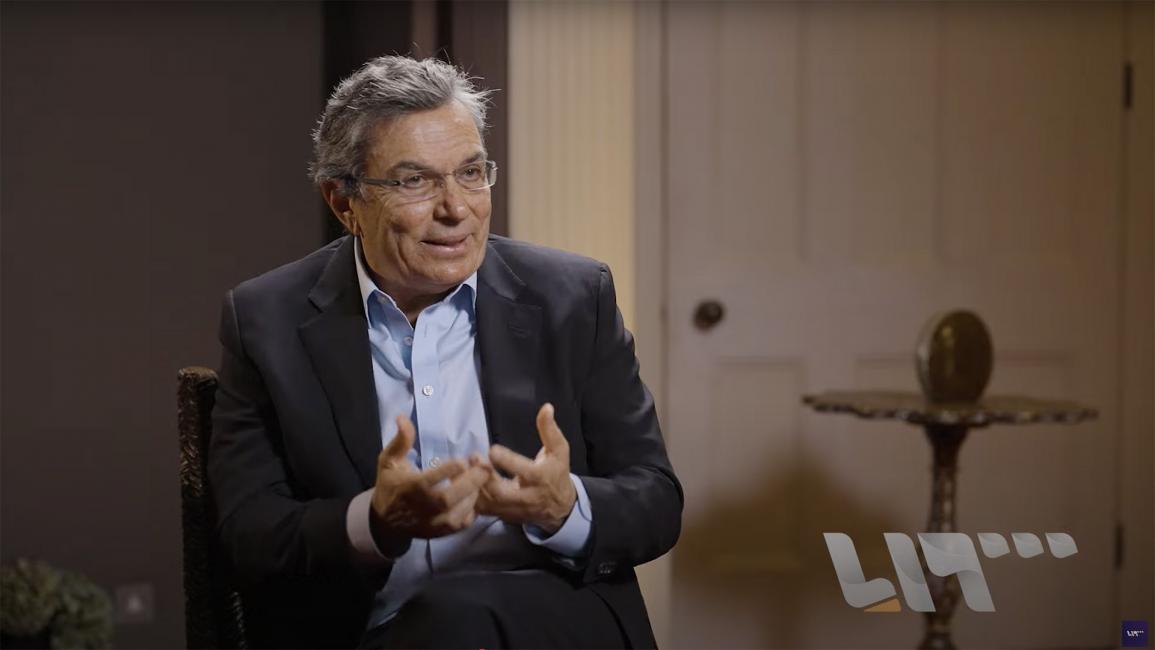In a candid televised interview this week, internationally renowned Syrian businessman Ayman Asfari issued a stark warning: Syria is facing the most perilous chapter in its modern history, and risks fragmentation if current political trajectories persist.
Speaking to Syria TV, Asfari explained his decision to appear in the media by underscoring the severity of the moment. While he did not reject the leadership of President Ahmad al-Sharaa outright, he expressed full disagreement with the administration’s policies since its inception—policies he sees as exclusionary, monopolistic, and dangerously unaccountable.
Dissent Without Disloyalty
Asfari’s influence in Syrian public discourse has grown significantly, especially following a February statement widely interpreted as a refusal to lead a transitional government under conditions dictated by al-Sharaa’s team. Instead, Asfari insisted on political independence and the right to pursue sovereign policies focused on reviving the Syrian state. His credentials as one of Syria’s most successful businessmen, and as a long-time supporter of civil and political initiatives since 2011, lend weight to his views. He is not, he stressed, pursuing public office for wealth or personal privilege. “I am a global citizen,” he said, “but I remain rooted in Syria’s future.”
Asfari warned that if al-Sharaa’s administration continues on its current course—dominated by religious ideology, controlled by foreign military and security commanders, and characterized by centralization and exclusion—the country risks collapse. He cited reports that influential U.S. officials view Hay’at Tahrir al-Sham (HTS) as ideologically proximate to ISIS, and emphasized that the United States remains a key gatekeeper to any future sanctions relief. In a recent meeting in Brussels, a senior American envoy handed Syrian Foreign Minister Asaad al-Shaibani a list of conditions for legitimizing the transitional administration, foremost among them the removal of foreign personnel not just from sovereign posts, but from Syrian territory altogether.
According to Asfari, these conditions are non-negotiable: U.S. sanctions cannot simply be circumvented by regional allies like Turkey or Qatar without consequences. His message was diplomatic but clear: continued delay, mismanagement, and ideological hardening risk not only prolonging the transition, but ultimately derailing it.
Two Competing Visions for Syria
Echoing long-standing demands of the Syrian opposition, Asfari reiterated that the country’s recovery hinges on the establishment of a democratic state based on citizenship, separation of powers, and full political inclusion. He warned against the marginalization of key regions and groups—including minorities and dissidents—and criticized the administration’s unilateral dissolution of the police force and the mass dismissal of over half a million public sector employees. These actions, he argued, are not only unjust but also unlawful, given the transitional administration’s lack of electoral legitimacy.
Asfari presented a sharp contrast between two competing models: one exclusive and sectarian, embodied by HTS, and another participatory, inclusive, and founded on equal citizenship. The mass layoffs, he cautioned, could create a “ticking time bomb” if those affected remain without income, dignity, or representation.
He further criticized the administration’s rhetorical substitution of “shura” (consultation) for democracy. Citing the Singaporean model as a relevant example, he emphasized the need for modern governance rooted in pluralism, rule of law, and economic competence. “Jurisprudence,” he argued, “is not a foundation for economics, politics, education, or culture.” Asfari, identifying himself as a Sunni Muslim, underscored that his critique was not anti-religious, but a call for a secular, modern, and accountable state.
Geopolitical Realities and Internal Fragmentation
Asfari also touched on growing geopolitical risks, including mounting hostility from Israel, which he claimed seeks to divide Syria and obstruct any national resurgence. Referring obliquely to comments by former U.S. President Donald Trump, Asfari suggested that Syria risks becoming a bargaining chip between regional powers.
But he warned that external threats must not be compounded by internal fractures. The recent violence in the coastal region, coupled with rejection of the constitutional declaration by Kurdish and Druze leaders, illustrates the depth of political alienation. Many veterans of the 2011 uprising and opposition leaders, Asfari argued, feel increasingly excluded by a government that rewards only those who endorse its worldview.
“The administration cannot lean solely on revolutionary legitimacy derived from military strength,” he said. “The very factions it relies on today could be the ones fighting tomorrow, pushing the country toward civil war—one that foreign actors may be all too eager to fuel.”
Toward a National Reset
Asfari’s analysis is unambiguous: the transitional government’s policies over the past four months have exacerbated both domestic tensions and international isolation. The failure to engage with the U.S. conditions or to address the concerns of marginalized communities, he warned, will continue to destabilize the transition.
To avoid this, Asfari called for a comprehensive national reset: a clear break from religious domination in governance, the adoption of national—not factional—policies, and the convening of a general national conference. Such a conference, he said, should be the foundation of legitimacy for all transitional structures, including the government, the legislative council, the new Syrian army, and the state’s economic and constitutional vision.
Only through such a framework, he argued, can Syria shield itself from external imposition, restore internal cohesion, and build a path forward rooted in justice, equality, and sovereignty.
This article was translated and edited by The Syrian Observer. The Syrian Observer has not verified the content of this story. Responsibility for the information and views set out in this article lies entirely with the author.


